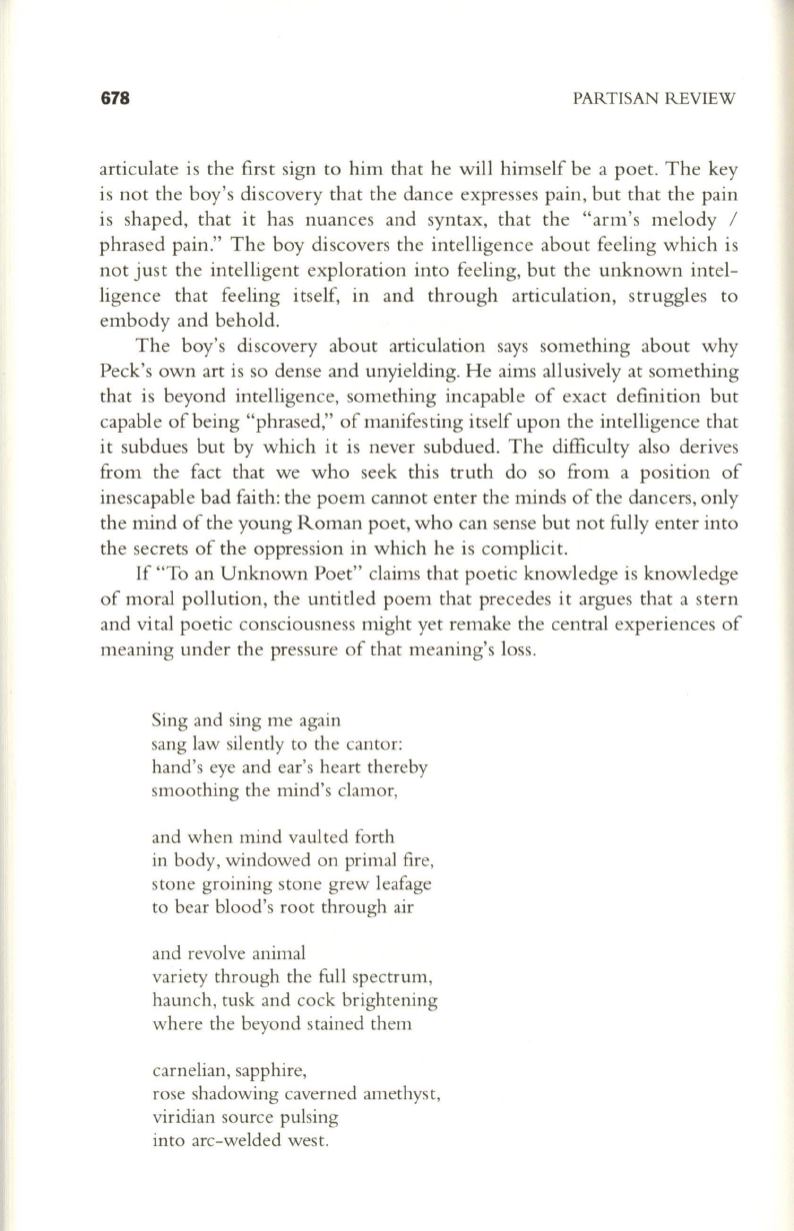
678
PARTISAN REVIEW
articulate is the first sign to him that he will himself be a poet. The key
is not the boy's discovery that the dance expresses pain, but that the pain
is shaped, that it has nuances and syntax, that the "arm's melody /
phrased pain." The boy discovers the intelligence about feeling which is
not just the intelligent exploration into feeling, but the unknown intel–
ligence that feeling itself, in and through articulation, struggles to
embody and behold.
The boy's discovery about articulation says something about why
Peck's own art is so dense and unyielding. He aims allusively at something
that is beyond intelligence, something incapable of exact definition but
capable of being "phrased," of manifesting itself upon the intelligence that
it subdues but by which it is never subdued. The difficulty also derives
from the fact that we who seek this truth do so from a position of
inescapable bad faith: the poem cannot enter the minds of the dancers, only
the mind of the young Roman poet, who can sense but not fully enter into
the secrets of the oppression in which he is complicit.
If "To an Unknown Poet" claims that poetic knowledge is knowledge
of moral pollution, the untitled poem that precedes it argues that a stern
and vi tal poetic consciousness might yet remake the central experiences of
meaning under the pressure of that meaning's loss.
Sing and sing me again
sang law silently to the cantor:
hand's eye and ear's heart thereby
smoothing the mind's clamor,
and when mind vaulted forth
in body, windowed on primal fire,
stone groining stone grew leafage
to bear blood's root through air
and revolve animal
variety through the full spectrum,
haunch, tusk and cock brightening
where the beyond stained them
carnelian, sapphire,
rose shadowing caverned amethys t,
viridian source pulsing
into arc-welded west.


